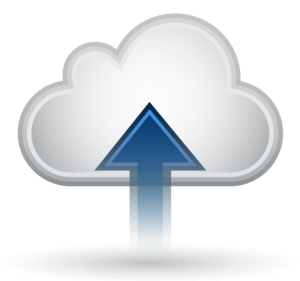
Small business backup systems
If you are running a small business you must be aware of the importance of a backup system, if not you must ask yourself how important is your data to you? Let's picture a scenario where you have started your work week and over the weekend a water main has burst in your office damaging all your computer equipment. Where do you start? How do you get back online?
Not only do you need to replace expensive computer equipment which will be covered by your business insurance but how about all your files, data, applications, client lists, etc. All of this data is the backbone of your business if you lose it all you would need to re-implement all the process documents and settings you have built up over the years.
A sound backup plan is your road to recovery in times of an emergency, not only do natural disasters exist but this is just a small portion of threats that could go wrong. Just to list a couple more examples hardware failure, viruses, hackers and power surges are threats that can occur at any time.
Choosing a backup plan - Firstly you need to assess the risks of what could happen to your business and classify them in terms of severity as well as chances of occurring. A fire in the building is a low chance of occurring however it could be costly if you don't have an offsite backup or cloud backup. Once you have outlined your risks and categorised them in terms of severity you can piece together the type of backup plan you need.
3-2-1 backup plan - 3 backups, 2 different mediums and 1 offsite is a flawless backup model as it addresses all potential disasters and has you covered. Having 3 backups allows you to make sure your completely covered where you can configure the backup to completely backup the system or backup only certain files and documents or backup. 2 different mediums allows gives you the option to have a plan B if one of the backups fail, this could be using an external harddrive which fails due to becoming corrupted however you have a cloud backup in place as your fall back. 1 offsite is great for any physical issues(flood, fire, etc) that may occur which might prevent the backup from backing up to the cloud.
Types of Backups - Here are a few types of backups that exist
RAID 0-5 - Redundant Array of Inexpensive Disks, is where you have multiple hard drives minimum of 2 either being an exact clone of each other or having certain parts of data split amongst the drives.
Differential backup - This only backs up data that has been changed or added since the last full backup its great for saving storage on your backup mediums.
Incremental backup - This only backs up data that has been modified since the last full backup, so any added new files would not be backed up unless a full backup had been run first and the added files were edited after the full backup.
Full backup - This is a complete backup off all the files of the system, this can be configured to only backup files and specific folders or an entire system image.
Cloud backup - Is where a full backup, incremental or differential have been backed up to the cloud which is cluster of services located in decentralised locations. So for example one server cluster might be located in India and a mirror cluster might be located in USA. If India gets hit by a natural disaster then USA will be the provider of the backup in that case.
Offsite backup - This is similar to cloud backup however it can be performed differently, for example you can have a server computer located at a business owners home where the backups are sent over the internet and hosted on this server. However if the internet fails the backup fails, to prevent this you could use an external hard drive link it to the workstation and have all the backups on this external hard drive which can then be taken offsite at the end of each business day.